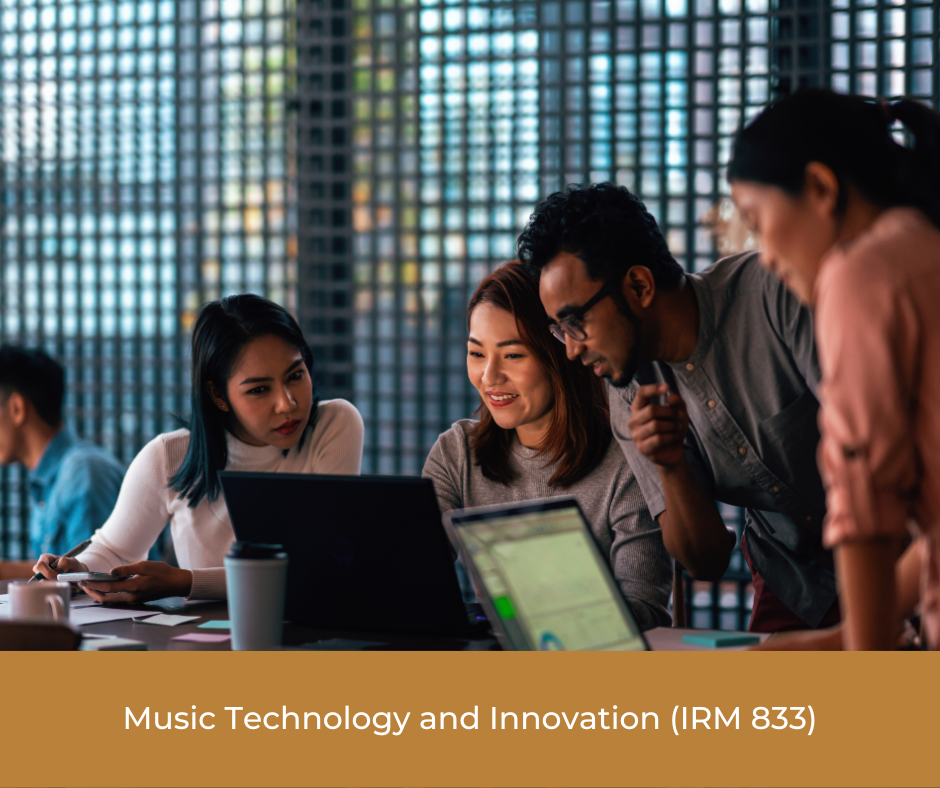Course Description:
The Music Technology and Innovation course is a dynamic exploration of the intersection of music and technology. Students will delve into advanced topics related to digital music production, sound design, and the transformative impact of technology on music composition and performance. This course equips students with the knowledge and practical skills needed to harness the power of technology in creating, producing, and experiencing music.
Outline of Major Content Areas:
- Digital Audio Production Techniques:
- Advanced recording, editing, and mixing in digital audio workstations (DAWs).
- Effective sound engineering for professional audio production.
- Sound Synthesis and Manipulation:
- Exploring techniques for creating, modifying, and manipulating digital sounds.
- In-depth study of synthesis methods, including subtractive, additive, and granular synthesis.
- Interactive Music and Multimedia:
- Examining the role of technology in interactive music and multimedia installations.
- Hands-on experience with interactive music controllers and performance systems.
- Music Software and Hardware Innovation:
- Surveying the latest innovations in music software, including virtual instruments and digital effects.
- Investigating emerging hardware technologies for music creation and performance.
- Practical Projects:
- Creating original music compositions using advanced music software and technologies.
- Experimenting with innovative technologies in music production and performance.
Course Learning Outcomes:
Upon completion of this course, students will have achieved the following learning outcomes:
- Proficiency in Digital Audio Production: Develop advanced skills in digital audio production, including recording, editing, and mixing within digital audio workstations.
- Sound Synthesis Mastery: Gain expertise in sound synthesis techniques, enabling students to create, modify, and manipulate digital sounds effectively.
- Interactive Music Competence: Understand and apply technology in interactive music and multimedia projects, including hands-on experience with controllers and performance systems.
- Knowledge of Music Innovations: Stay updated on the latest software and hardware innovations in the field of music technology, being prepared to integrate them into creative projects.
- Creative Music Production: Create original music compositions using advanced software and innovative technologies, showcasing the application of technology in music.
- Critical Analysis: Develop the ability to critically evaluate the impact of technology on music composition, performance, and production.
Methods for Assessing Student Learning:
To assess student learning in the Music Technology and Innovation course, various methods will be used to gauge students’ proficiency and understanding of the course content:
- Music Production Projects: Students will complete music production projects that demonstrate their application of digital audio production techniques and sound synthesis.
- Interactive Music and Multimedia Projects: Creation of interactive music and multimedia projects, showcasing the incorporation of technology into artistic expressions.
- Class Participation and Discussions: Actively engaging in class discussions and activities related to music technology and innovation.
- In-Class Presentations: Presentations on emerging music software and hardware innovations, encouraging students to explore and communicate their findings.
- Research Papers or Reports: Students may be required to write research papers or reports on specific topics related to music technology and its innovative applications.
- Final Assessment: A comprehensive final assessment that may include practical demonstrations, essays, or other evaluative methods to measure students’ knowledge and skills in music technology and innovation.
By employing these diverse assessment methods, students will gain not only technical expertise in music technology but also the creative and analytical skills necessary for pushing the boundaries of music creation and performance using innovative technologies.
